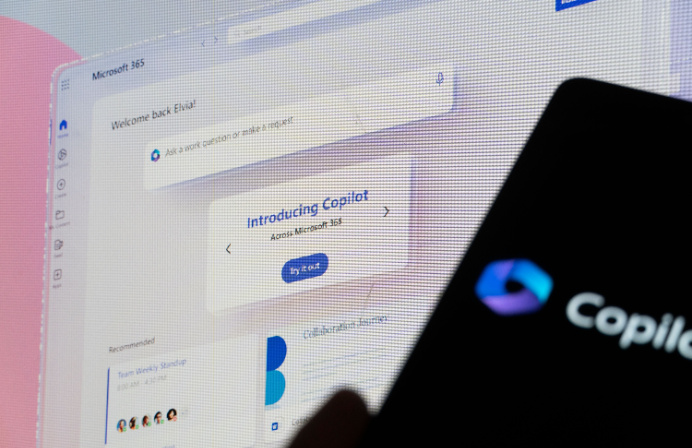
Australia’s biggest industry super fund, AustralianSuper, will look to deliver an up to 30 per cent productivity boost across its organisation over the coming years using artificial intelligence (AI) technology, the company has revealed.
The firm has set a rather more modest, though concrete, goal of increasing overall productivity by five per cent over the next 12 months using the technology.
While admittedly “conservative”, this initial five per cent AI-backed efficiency boost will provide a springboard to substantially increase productivity, according to AusSuper chief technology officer Mike Backeberg, unlocking substantial ROI for the business.
“[Five] per cent will pay for the actual technology multiple times over,” Backeberg said as part of a Microsoft partnership brief.
“With that kind of ROI, we don’t have to be too aggressive. Over the next few years, it’s probably going to be more like a 20 to 30 per cent increase in productivity, depending on the evolution and availability of AI technology.”
Currently, despite its early uptake of Microsoft’s Copilot program and establishment of a dedicated AI engineering team, Backeberg admitted that AusSuper’s AI maturity “is only at level one on the five-point scale that we’re using”.
“We’ll be undertaking a program to get ourselves up the maturity scale and increase the use of AI,” he said.
“We believe it will take about 18 months for all our people to properly adopt generative AI because we have to think carefully about how we embed it into our processes.
“For example, new employees will require it as part of their toolset, so we need to provide the right onboarding, education and training to ensure they get value out of technologies like Copilot for Microsoft 365.”
While the super fund began actively deploying AI technologies in 2016 for decision support and straight-through processing systems, the emergence of generative AI (Gen AI) solutions has spurred the technology’s adoption.
A long-time partner of Microsoft, the super fund was among one of 600 organisations globally invited by Microsoft to participate in its Copilot for Microsoft 365 Early Access Program (EAP), announced last May.
Similar in scope to the freely available ChatGPT, Microsoft’s Gen AI system Copilot acts on users’ natural language prompts to create, edit, synthesise or analyse a variety of content. This includes the outputting of text (such as the drafting of documents or spreadsheets, or the creation of computer code) and images.
“We aim to be thought leaders in the generative AI space,” Backeberg said. “Our core priority is to use it to improve member outcomes, both through the way we provide services and how we are using it to free up our people to focus more on higher-value tasks.”
Like other tech-forward financial services businesses, AustralianSuper has also developed its own internal chatbot to assist employees with analysing its voluminous policies and standards.
Copilot’s early flights
Copilot, even in early testing, has been actively embraced by AustralianSuper. Initially planned for a modest rollout for 100 employees, the super fund expanded its Copilot for Microsoft 365 trial to 260 active users due, it said, to “overwhelming interest”.
“EAP users have seen great benefit using Copilot Microsoft Teams meetings, and drafting and summarising documents in Microsoft Word,” AusSuper said.
The firm said it is now encouraging its entire workforce to use the technology, focusing on driving high adoption and accessibility; it is also monitoring use of Copilot via Microsoft Viva Insights “to gain insight into usage and impact”.
“We want employees to embrace generative AI, learn from each other and really think about how it translates to achieving better outcomes for our members, whether that’s by delivering services faster, providing deeper insights, making better investment decisions or managing risk better,” Backeberg said.
While AusSuper said it has been careful to embed an ethical and responsible approach to all AI use, and has established an AI Governance Forum to guide the fund’s approach and alignment with member interests, Backeberg encourages experimentation with Gen AI technology. Users, he added, should not wait for the perfect dataset before using the technology.
“The landscape of data is evolving so rapidly that waiting for perfect data hygiene might leave you lagging behind,” he said. “AI tools will evolve to address data complexities on their own.”
He encourages peer businesses to “prepare now, start on a small scale and be ready to grow”.
“By the time AI becomes a necessity, you’ll be thankful for the groundwork laid today.”
AusSuper is also exploring the use of generative AI for cybersecurity practice, participating in Microsoft’s Security Copilot EAP.
With many businesses challenged by underrresoucing in their cyber function (AusSuper’s cyber team itself currently operates in a hybrid model alongside managed service partners), Security Copilot has been spruiked as a means of boosting these ranks.
“For every four members of our cyber defence team who use Security Copilot, we believe the technology effectively adds a fifth colleague to their ranks,” Microsoft said.
Backeberg added: “We are looking at Security Copilot to help take some of the more menial tasks away so our team can focus on high-value activities.
“We see it as a fundamental tool for us to enhance our information security.”
Microsoft noted the ability of the Security Copilot to facilitate the generation of Kusto Query Language scripts, used within Microsoft Sentinel for log analysis and identifying core vulnerabilities.
Backeberg notes that this has significantly accelerated the fund’s vulnerability assessment processes.
Like other Gen AI-savvy engineering teams, AustralianSuper said it is also using GitHub Copilot to enhance the efficiency and creativity of its software development team by streamlining code creation and review.





